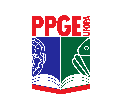Banca de DEFESA: DELISVAN BENTO DA SILVA
Uma banca de DEFESA de MESTRADO foi cadastrada pelo programa.STUDENT : DELISVAN BENTO DA SILVA
DATE: 22/05/2024
TIME: 09:00
LOCAL: Plataforma Meet
TITLE:
O PROCESSO DE IMPLEMENTAÇÃO DO PROGRAMA MAIS EDUCAÇÃO E SUAS INTERFACES COM A CRISE ESTRUTURAL DO CAPITAL: ESTUDO DE CASO EM UMA ESCOLA DO MUNÍCIPIO DE RURÓPOLIS-PA
KEY WORDS:
Integral Education. More Education Program. Structural Crisis of Capital. Reformism. Neoliberalism.
PAGES: 224
BIG AREA: Ciências Humanas
AREA: Educação
SUBÁREA: Administração Educacional
SPECIALTY: Administração de Sistemas Educacionais
SUMMARY:
This study aims to analyze the implementation process of the Mais Educação Program (PME)
at the Escola Municipal de Ensino Fundamental Almir Gabriel, in the municipality of
Rurópolis, state of Pará. It investigates the development of the program in the context of the
capital's structural crisis, examining the influences of neoliberal ideology and reformist ideas
of society in its execution. We adopted a case approach in the research, based on the historical-
dialectical materialism of Marx and Engels, following the theoretical perspective of the
Hungarian philosopher István Mészáros (1930-2017). The discussion is based on three central
works by Mészáros: Beyond Capital (2008), Education Beyond Capital (2008) and The
Structural Crisis of Capital (2011). To address neoliberalism, we dialogue mainly with Pierre
Dardot and Christian Laval (2016), and in less depth, with the contributions of David Harvey
(2014), and other contemporary authors such as Gaudêncio Frigotto (2010), Juliana Jordão and
André Fonseca (2021 ), André Fonseca and Wilson Serejo (2020), Juliana Jordão (2021), André
Fonseca and Lilia Colares (2022), André Fonseca (2019), Paulino Orso (2007), Marco Gomes
and Lilia Colares (2012), Janete Azevedo ( 2002, 2004), and Janete Azevedo and Maria Farias
(2018). In approaching the object of study, Integral Education and PME, the productions of
several authors were used, including Lígia Coelho (2009), Débora Jeffrey (2012), Jaqueline
Moll (2009, 2014, 2018), Ana Maria Cavaliere ( 2010) and Lúcia Maurício (2009), in addition
to legislation in the educational field. After data collection, which occurred through interviews,
with the support of a voice recorder and the subsequent transcription of the recordings, the
information collected was analyzed. This allowed us to interpret how the PME was
implemented at the school and analyze its interfaces with the structural crisis of capital. The
PME implementation period in the studied school occurred between 2012 and 2015, coinciding
with a context of institutional and political crisis in the country. In this scenario, there was a
transition from a 14-year cycle of socialist-oriented governments (2003-2016), led by the
Workers' Party (PT), to a new political group more aligned with the market. This resulted in the
discontinuity of several public policies, including the PME. Although the PME was conceived
as an educational policy committed to education beyond capitalist interests, its implementation
at Escola Almir Gabriel was limited by the influences of capital, evidenced by the latent
presence of neoliberalism and its reformist character. This influence manifested itself through
restrictions on financial resources, the emphasis on external evaluations, the lack of community
participation and professional training, the exclusion of groups from the right to Integral
Education and the absence of a policy of physical restructuring of the school to carry out the
program.
COMMITTEE MEMBERS:
Interno - 324704 - EDILAN DE SANT ANA QUARESMA
Interno - 1905619 - ANDRÉ DIONEY FONSECA
Externa à Instituição - VANDERLEIA PAES LEITE MUSSI - UFMS




